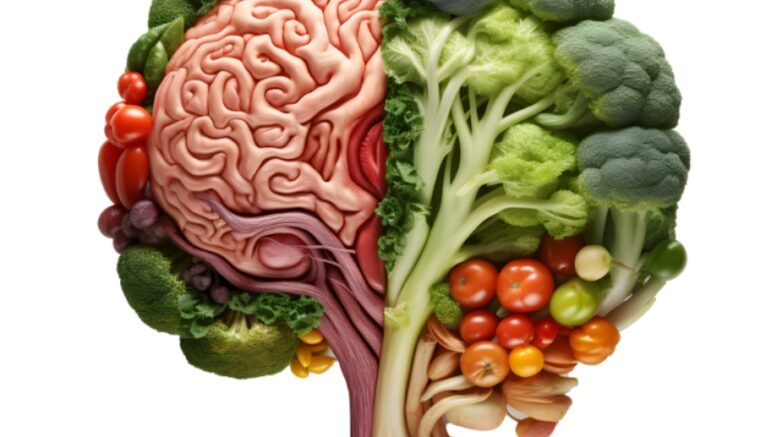Imagine walking into a room filled with the scent of freshly baked bread wafting through the air and a table set with care. This is the vision of dining in an ideal care home, yet for those living with dementia, eating well takes on an even greater significance.
In residential aged care services, the dining table becomes a gathering place where sharing a meal can encourage a connection with others. Here, the intricate dance of nutrition and diet plays out each day for individuals with dementia.
It’s crucial to hit the right notes to make every mouthful count as caregivers formulate a dietary plan that can support both the mind and the body in facing the challenges of dementia.
Understand Dementia-Related Eating Challenges
One of the primary concerns in dementia care is recognizing and addressing the eating challenges that often accompany cognitive decline.
Dementia can lead to changes in appetite and eating patterns. It can also disrupt a person’s ability to recognize hunger cues or the food on their plate. Understanding these changes is crucial to adapt meals and feeding strategies accordingly.
Incorporate Nutrient-Dense Foods
As someone managing the needs of individuals with dementia, your role is crucial in fortifying their diets with nutrient-rich foods. Here’s how you can enhance their meals:
- Choose Whole Foods: Start by incorporating whole foods, such as fruits, vegetables, whole grains, and lean proteins. They’re brimming with essential nutrients necessary for optimal health.
- Favor Healthy Fats: Include healthy fats, such as avocados, nuts, and seeds, which are crucial for brain health. The fats found in fish, including salmon, are particularly beneficial as they’re rich in omega-3 fatty acids.
- Prioritize Protein: Protein is vital for maintaining muscle mass and overall strength, as physical activity may decrease with advancing dementia.
- Enrich With Vitamins And Minerals: Fortify meals with foods rich in vitamins and minerals. Leafy greens, for example, are excellent sources of folate, vitamin K, and other vital nutrients.
- Choose Antioxidant-Rich Choices: Antioxidants help reduce oxidative stress that affects brain health. Berries, dark chocolate, and other spices can offer this protection.
As you plate up these nutrient-dense choices, presentation matters. The food should not only be good for the body but also appealing to the eye, as a well-presented meal can entice a better appetite and encourage individuals to enjoy their food.
Adapt To Changing Tastes And Preferences
Remember, tastes and preferences can change, especially in dementia patients. You may need to adjust recipes and menu options to cater to these evolving tastes.
Also, pay attention to texture. Some individuals might have difficulty chewing or swallowing, necessitating softer foods or purees.
Ensure Adequate Hydration
Transitioning from nutrition to hydration, it’s essential to ensure that individuals with dementia stay properly hydrated. They may not always remember to drink or recognize feelings of thirst.
Providing water, flavored water, or other beverages regularly throughout the day is vital. Nevertheless, caregivers should monitor fluid intake and be alert to any signs of dehydration.
Facilitate A Supportive Dining Environment

The ambiance where meals are served is just as essential as the food itself. Here’s how you can create a supportive dining environment that enhances mealtime for residents:
- Establish Routine: You’ll want to keep meal times consistent. This predictability can be a comfort, offering a steady rhythm in what might otherwise feel like an unpredictable world.
- Minimize Distractions: Keep the dining area calm and free from bustling activity and loud noises that can cause confusion or distress, allowing residents to focus on their meals.
- Social Interaction: Arrange seating to encourage social interaction, stimulate appetite, and provide a pleasant mealtime experience.
- Ambiance Matters: Pay attention to the lighting and decor. A brightly lit room with cheerful colors can make the dining area more welcoming.
A thoughtfully arranged dining space encourages eating and serves as a haven for communal activity and joy.
Encourage Independence And Dignity In Eating
While support is crucial, it’s equally important to encourage independence in eating for as long as possible. Adaptive utensils, plate guards, and non-slip mats can help individuals maintain their dignity and autonomy during meals.
Even small victories in self-feeding can boost mood and self-esteem.
Monitor Weight And Nutritional Status
As a caregiver, it’s your responsibility to notice the nuances of a resident’s health as reflected in their weight fluctuations. These shifts, whether loss or gain, can be harbingers of underlying health issues or indicate a dietary plan needing adjustment.
Regular weight checks and nutritional assessments provide a roadmap to the individual’s well-being. This ongoing process helps in maintaining not just the physical health but also the emotional and cognitive well-being of those entrusted to your care.
Final Words
Caring for individuals with dementia goes beyond routine; it demands attention to their unique nutritional needs. Take action today—evaluate your care strategies, infuse compassion with every meal, and ensure that nutrition is a priority in your care plan.
